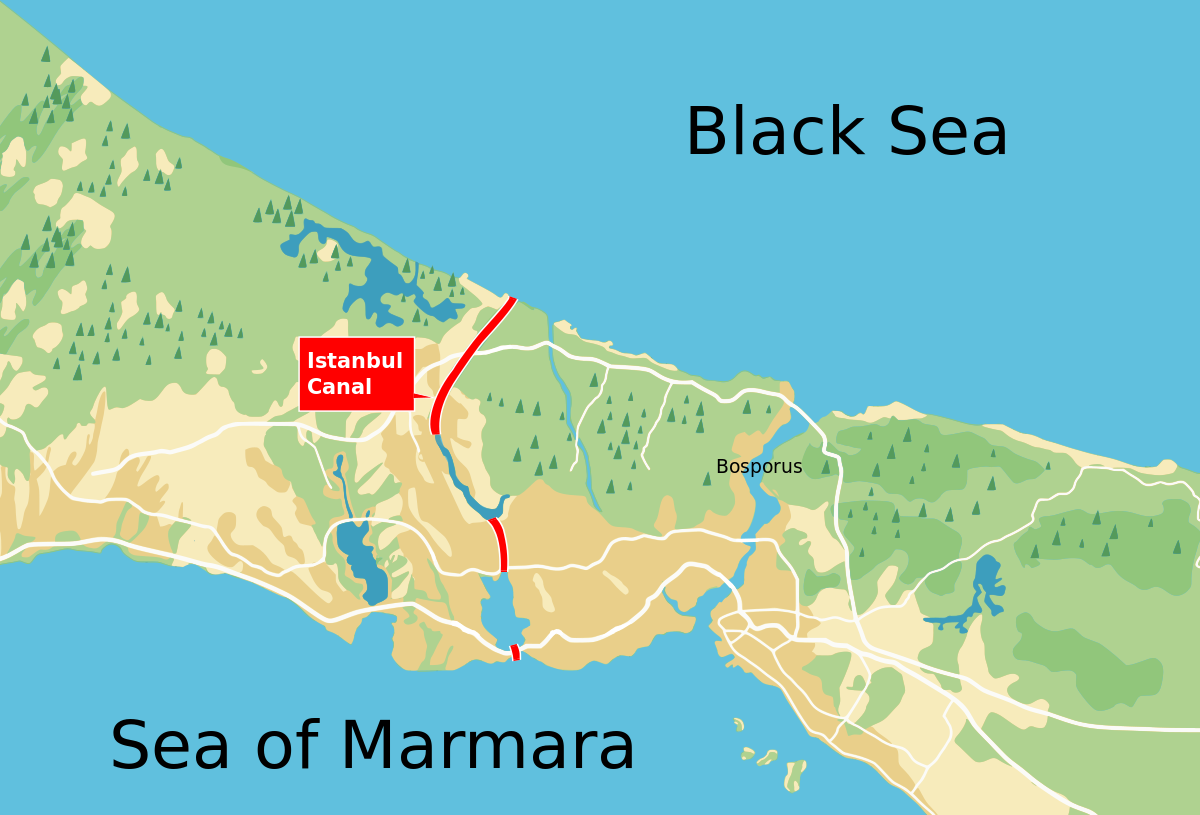How Will Kanal Istanbul Affect Turkey's Geopolitical Influence?
The ecological and social consequences of Kanal Istanbul also raise significant concerns. The project stands to impact the natural habitats and biodiversity of both the Black Sea and the Sea of Marmara, as well as Istanbul's freshwater resources.

Kanal Istanbul, a proposed man-made waterway, aims to establish a connection between the Black Sea and the Sea of Marmara, effectively creating an island between Istanbul's European and Asian sides.
Its primary objectives include alleviating shipping congestion and reducing environmental hazards in the Bosphorus Strait, while also stimulating Turkey's economy by generating revenue and employment opportunities.
Nevertheless, the project confronts various obstacles and criticisms, encompassing concerns regarding the Montreux Convention, feasibility and costs, ecological and social repercussions, and geopolitical implications.

Visit World Future for more foreign news and regional Asean stories
The Montreux Convention serves as a treaty that regulates the passage of naval vessels through the Bosphorus and Dardanelles straits. It grants unrestricted access to civilian ships while imposing limitations on foreign warships in the Black Sea. Particularly for littoral states like Russia, Ukraine, Georgia, Romania, and Bulgaria, the convention guarantees stability and security in the region.
Impact of Kanal Istanbul
However, some analysts argue that Kanal Istanbul would circumvent the convention, potentially enabling Turkey to exert greater control over naval traffic and bolster its military presence in the Black Sea.
The Turkish government asserts that Kanal Istanbul would not be subject to the Montreux Convention but would adhere to its principles, ensuring that other countries' interests are not compromised.
Debates also revolve around the project's feasibility and costs. Estimated at $15 billion, Kanal Istanbul is projected to take approximately seven years to complete. The canal's specifications include a length of 45 kilometers, width of 275 meters, and depth of 21 meters, with a daily capacity of 160 vessels.

The government intends to finance the endeavor through a build-operate-transfer model or public-private partnerships, with an anticipated annual revenue of $8 billion generated from transit fees. However, skeptics question these figures, suggesting that the net profits might be negative due to maintenance expenses, environmental harm, and reduced transit demand.
Moreover, they highlight the technical complexities and risks associated with constructing such a large-scale infrastructure in a seismically active area.
The ecological and social consequences of Kanal Istanbul also raise significant concerns. The project stands to impact the natural habitats and biodiversity of both the Black Sea and the Sea of Marmara, as well as Istanbul's freshwater resources.
Environmental Friendly
Alterations in the seas' salinity, temperature, and currents resulting from the canal's construction could lead to eutrophication, algal blooms, fish fatalities, invasive species, and marine pollution. Additionally, extensive soil excavation and disposal would be required, potentially causing dust pollution, noise disturbances, traffic congestion, and land subsidence.
Furthermore, the project would necessitate the displacement of thousands of individuals residing along the canal route, leading to the establishment of new urban settlements that could intensify population density and strain public services.
The geopolitical implications of Kanal Istanbul are equally significant. By creating a new maritime corridor, the project would bolster Turkey's strategic position and influence in the region, potentially posing competition or complementarity with existing or planned routes such as the Suez Canal or the Northern Sea Route.
Additionally, it would enhance Turkey's bargaining power and leverage in its interactions with various actors, including Russia, NATO, the European Union, China, Iran, Israel, Egypt, Greece, Cyprus, and Libya. Consequently, the project could engender new conflicts or opportunities for cooperation concerning energy security, trade facilitation, maritime law enforcement, environmental protection, and regional stability.
In conclusion, Kanal Istanbul represents an ambitious and contentious project that holds the potential for significant impacts on Turkey's geopolitical influence, economic development, and environmental sustainability. Addressing the numerous challenges and risks necessitates a thorough evaluation and engagement of all stakeholders involved. Furthermore, the project calls for a clear vision and strategy that align with Turkey's national interests, values, as well as regional and global responsibilities.

